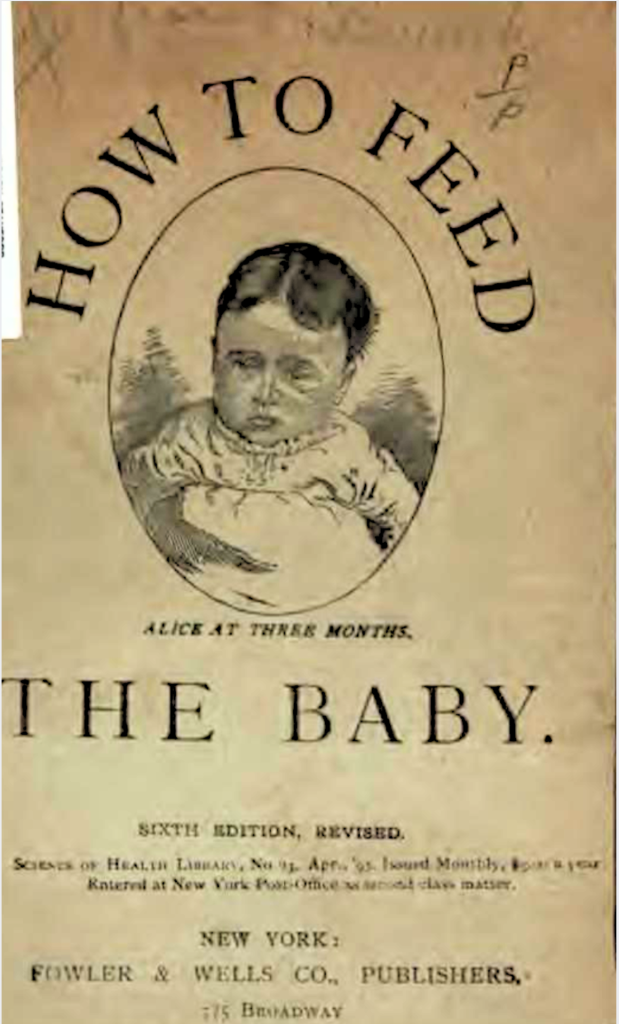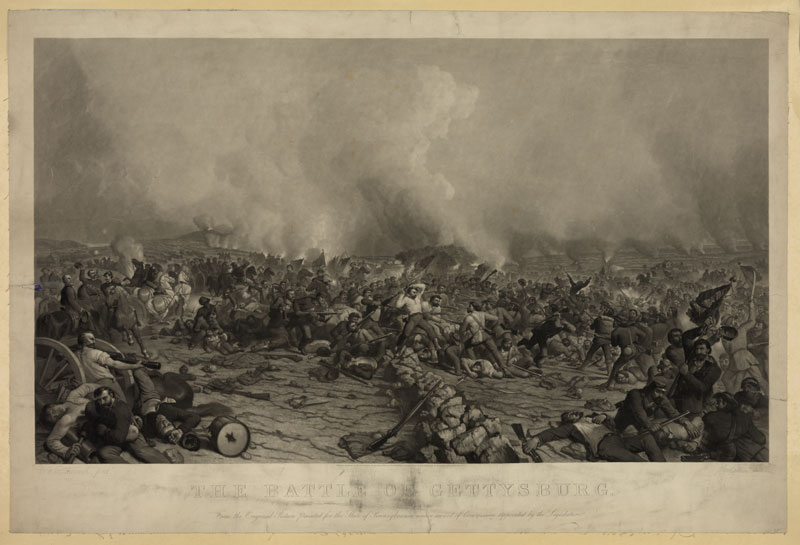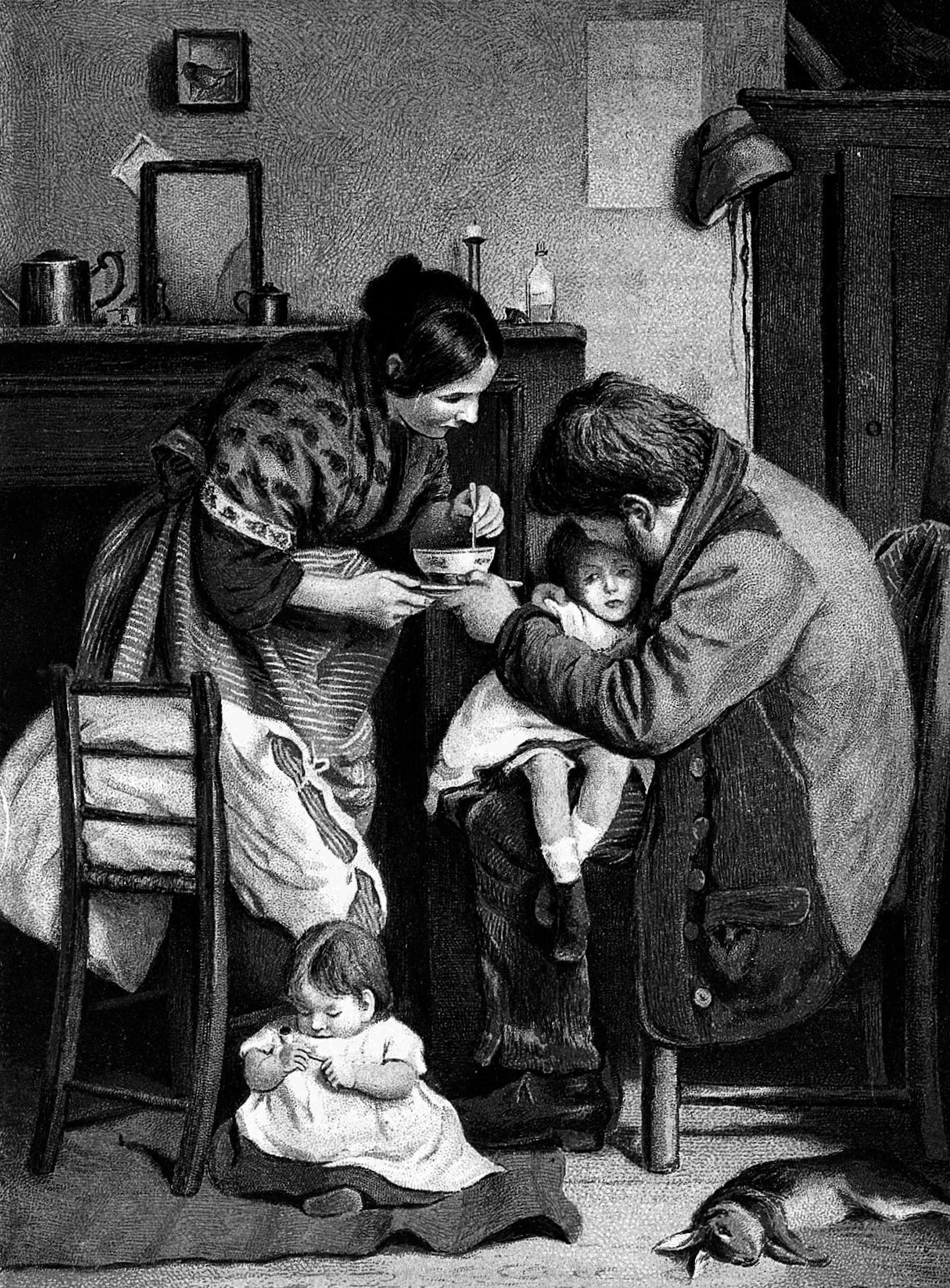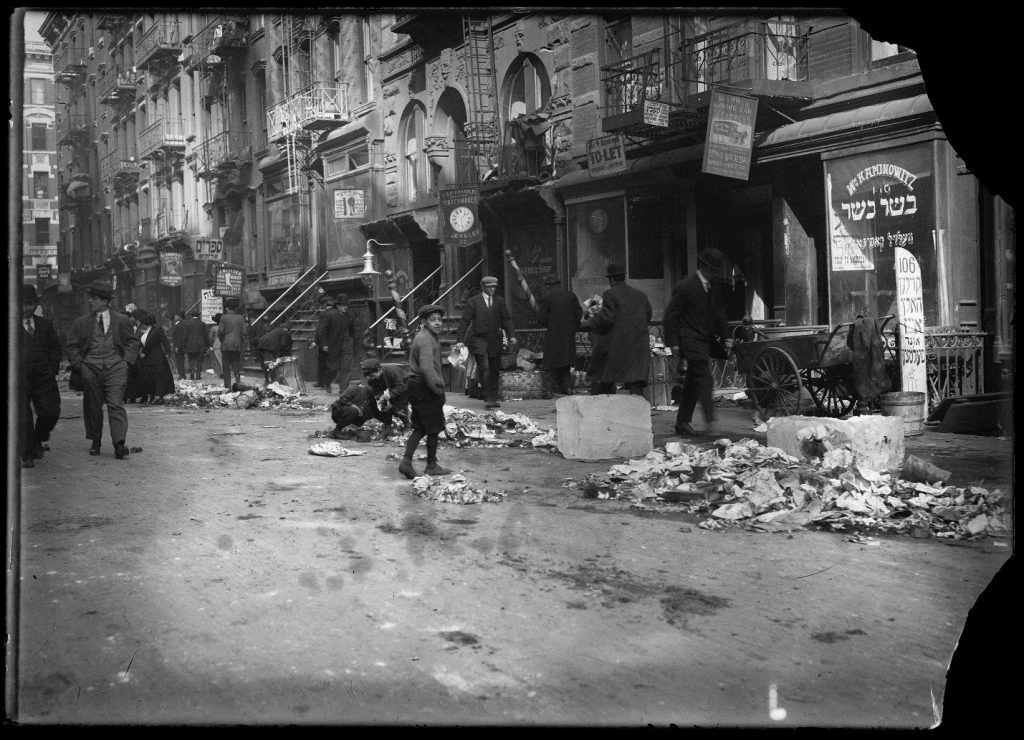(1840-1925)
About
Charles Edward Page was born in Norridgewock, Maine, on February 23, 1840, to John and Fanny Page. He received his early education in local public schools and attended the Eclectic Medical College in New York City.
When the Civil War erupted, Charles enlisted as a private in the 13th Massachusetts Volunteers. He witnessed many soldiers dying from illness and infected wounds. Water was often contaminated, medical equipment was not sterilized, and doctors rarely washed their hands. In 1863, Page was captured by Confederates and was held as a prisoner of war for thirteen months. He was exchanged in 1864.
After the war, Charles continued his professional practice and resided in Boston. He practiced hydrotherapy, associated with the physical culture movement, and was an early advocate of therapeutic fasting.
In 1866, he married Harriette L. Hopkins on November 1st in Portland, Maine. They were the parents of at least one son and two daughters, but Harriet died early in 1873.
On September 24th, 1889, Charles married Jenna Day Adams. They had six children (Margaret, Charles Jr, Harold, Kenneth, Sherwood, and Norman) and one stillborn child.

How to Feed the Baby (A Nursery Guide).
Raising a large family, Dr. Page understood the importance of guiding children to health and wellness. Being a family advocate, he treated many young people and their families throughout his practice. His writings, describing how to raise healthy children successfully, were summarized in his book How to Feed the Baby (A Nursery Guide). He shares compiled data from that time that nearly one out of three deaths were infants under one year of age. His objective was to educate parents about the proper care and feeding of an infant through the early years. He went on to discuss the process of weaning, the introduction of solid foods, health hints, the proper home environment, and possible health problems and treatments (e.g., constipation, continuous crying, etc.).
Over his medical career, Dr. Page witnessed many outbreaks of typhus, various fevers, and pneumonia. He documents and writes extensively in journals about the human body’s ability to heal through hydropathic treatments. He summarized his journal publications in:
- The Successful Treatment of Typhoid Fever. 1879.
- Pneumonia And Typhoid Fever. 1891.
- Physiological, Or Rational, Treatment for Typhoid Fever. 1899.
- Pneumonia: Point on Treatment. 1899.
Fasting, one treatment technique Dr. Page used throughout his practice, is voluntary and based on abstinence from all food except water. He points out that “Little driblet meals are not fasting. There should not be a mouthful or sip of anything but water, occasionally drank, according to desire.” He shares, “If fasting were instituted at the first sign of trouble, few acute diseases would ever become very severe. Unfortunately, it is the custom to continue eating when symptoms appear”.
After a long and successful medical career, he died in 1925 at age 86 in Massachusetts and was buried in Wyoming Cemetery, Melrose, Massachusetts.
Life in the 1800s

One of the most significant events of the 1800s was the Civil War. Charles enlisted in the 13th Massachusetts Volunteers, and there he witnessed many soldiers dying from illness and infected wounds. Water was often contaminated, medical equipment was not sterilized, and doctors rarely washed their hands. Dysentery was the worst in the military camps, entering the body through contaminated food or water and attacking the intestines. Hygiene was deplorable, and latrines were often located near drinking water sources. Typhoid was another unsanitary disease that could quickly spread. Pneumonia was also responsible for many deaths, as men were unable to breathe with fluid-filled lungs. Malaria was another factor, and measles killed an estimated one in twenty.
The medicine during this period seems incomprehensible today. Physicians frequently bled patients to “force” the disease “out,” and many died in the process. Blistering was also a widespread healing technique. For at least a century, strychnine, a potent poison, was the best remedy the profession had to offer for paralytic conditions. Quinine was frequently used for fever, with such side effects as severe bleeding, kidney damage, irregular heartbeat, and severe allergic reactions.
Impact of Diet
Dr. Page shares stories throughout his journal articles about the allopathic treatments of the day vs. hydrotherapy. He notes that one man sought hospital treatment for appendicitis and died from the operation. However, another person sought therapy from a hydrotherapist and was speedily cured without surgery. He notes, “Few acute diseases would ever become severe if fasting were instituted at the first sign of trouble.”

Unfortunately, it was customary to continue eating when symptoms appeared. As Dr. Page said, “Nearly all patients treated allopathically continued to eat until food became loathsome, with patients vomiting to expel it from the body. Despite this, every effort was made to ‘tempt the appetite.’ He noted that any food aggravated the acute symptoms and hastened the disease to a chronic form.”
Dr. Page also shared that “There is no nourishment in forced feeding—only pain and poisoning. When universally applied, the fasting cure would save thousands of lives every year.” Fevers would be aborted in a few days of stomach rest. In his busy practice of over forty years, no fever ever developed into ‘typhoid,’ nor did whooping cough result in death.
In the last century, Dr. Page experimented and subjected himself to many extreme exposures to produce a cold. He summarizes the results of these exposures: “I got cold, I went to bed and got warm again.” Dr. Page showed that people with frequent colds eat so much that the digestion and excretion of excessive foods almost monopolize the body’s energy. Describing his experiments with colds, Dr. Page says that after “feeding a cold” as much as he dared, he invariably banished the cold by “abstaining from food and indulging in extra rations of outdoor air—rain or shine.”
Further, he observed that whenever he chose to prolong his experiment by eating heartily, the symptoms would increase in severity, with headache, sore throat, pressure at the lungs, hoarseness, and increased fever.” He says, “Two, perhaps three days of fasting (one, maybe two, in bed) would be required to reduce the fever and completely restore the balance.”
Teachings

Dr. Page did not believe in vaccination and defended the anti-vaccinationist, Immanuel Pfeiffer. He criticized the germ theory of disease and thought that improved sanitation was more effective in preventing smallpox than through immunization. He commented that the medical community was taking “coincidence for evidence” by attributing the decline in smallpox to vaccination rather than sanitation.
Dr. Page utilized fasting as a treatment throughout his practice. Fasting is neither a “hunger cure” nor “starvation,” as it is sometimes called. It is not starving and is not a method of curing “disease.” The severely ill’s aversion to food is a clear sign that food should not be used; hence, no food should be consumed. “Nature,” he says, “must be trusted.”
“The term frequently applied, starvation cure, notes Dr. Page, is misleading and disheartening to the patient. “Fasting is a rest—a physiological vacation. It is not an ordeal nor a penance. It is a house-cleaning measure that deserves to be better known and widely used.
Dr. Page repeatedly tested the water diet on typhoid, scarlet fever, and rheumatic fever and had always seen tremendous results. Few acute diseases would ever become very severe if fasting were instituted at the first sign of trouble.
Dr. Page believed feeding during a fever is exceptionally harmful to the body, as food can not be digested or assimilated. In some of the most distressful, hopeless cases that were sent to Dr. Page, he found that the withdrawal of food, drugs, and ‘stimulants’ and the substitution of soft water produced almost miraculous results.
As the father of many children and attending to them throughout his practice, he spent a lot of time educating his patients and their families. He noted that children being treated allopathically were consistently given food and drugs. When that treatment failed, Dr. Page was often consulted. He would then fast the patient until the stomach and bowels were cleaned. Dr. Page noted, “There is no nourishment or benefit in forced feeding—only pain and poisoning. Universally applied, the fasting cure would save thousands of lives every year. For example, there would be no ‘typhoid fever,’ as all fevers would be aborted in a few days of stomach rest. He never witnessed death from fever during his considerable and busy practice of over forty years.
Dr. Page also focused on mothers and their diets. He shared cases where a change in the mother’s diet—the avoidance of meat, pastry, spices, hot sauces, tea, coffee, and chocolate—and the adoption of a generous diet of plain wheat bread, vegetables, and fruit had a rapid and remarkable impact on an infant’s recovery from cholera infantum, without aid from any allopathic source.
In the 1800s, the public and medical field had an unnatural dread of fresh air. Despite the work accomplished by Sylvester Graham, Russell Thacker Trall, James Jackson, Felix Oswald, and other crusaders for fresh air and ventilated bedrooms, most people slept with bedrooms closed to the “night air.” Back in the day, the night air was considered harmful. Windows and doors were barricaded using curtains, screens, nightcaps, and other means. Be it damp or cold, summer or winter, air was permanently shut out.
Notable Achievements

Dr. Page had always seen incredible results by repeatedly testing the water diet on typhoid, scarlet, and rheumatic fever cases. He observed that a patient would avoid severe issues and lasting complications if fasting were instituted at the first sign of an individual’s illness. Dr. Page believed feeding during a fever is exceptionally harmful to the body, as food cannot be digested or assimilated. In some of the most distressful, hopeless cases that were sent to Dr. Page, he found that the withdrawal of food, drugs, and ‘stimulants’ and the substitution of soft water produced miraculous results.
Having reared a large family, Dr. Page taught his patients how to raise children successfully. In his book, How to Feed the Baby (A Nursery Guide), he shares statistics showing that nearly one out of three deaths were infants under one year. His objective was to educate parents through many aspects of the care and feeding of a baby, when to wean, health hints, the home environment, and possible problems and treatments (e.g., constipation, continuous crying, etc.). He considered mother’s milk the best food for the infant during the first eighteen months and even until the end of the second year.
As noted in the publication section, he was a prolific author. Throughout his medical career, he has written for various publications to help educate people on hydrotherapeutic principles associated with the physical culture movement. He was an early advocate of therapeutic fasting.
In his Hydropathic Encyclopedia, 1851, Dr. Russell Thacker Trall declared that all fresh fruits and green vegetables are antiscorbutic (as opposed to the development of scurvy). After Dr. Trall’s death, Dr. Page added to our fund of knowledge about trophology (the science of food that studies the impact of diet on the condition of the human body).
At the close of the century, Albert Turner, a friend of Russell Thacker Trall, started the Health Culture magazine, a Hygienic publication. About this time, Bernarr Macfadden began the journal Physical Culture (essentially hygienic), to which Drs. Charles Page and Felix Oswald contributed, both of whom were graduates of Russell Thacker Trall.
Dr. Page practiced in Boston for over thirty-five years and retired from active practice a few years before his death at 85. His many contributions to New England’s medical journals helped educate physicians, and his articles, included in various health publications and anti-vaccination periodicals, greatly influenced the general public.
More than a century later, progress has been made in caring for the ill through the pioneering efforts of natural hygienists like Dr. Page. The day will inevitably come when members of the healing arts and lay people realize that the primary answers to overcoming poor health and “conquering disease” lie in simple precepts: First, remove the cause; second, cleanse the body; and third, reap the benefits of obeying the laws of life to regain and live in vibrant health.
His work was a cornerstone of the Hygienic movement and formed the basis of the National Health Association as we know it today.
A detailed description can be found in the publication section below.
- The Natural Cure of Consumption (1884)
- How to Feed the Baby (A Nursery Guide) (1882)
- The Successful Treatment of Typhoid Fever. (1889)
- Pneumonia and Typhoid Fever: A Study (1891)
- The Successful Treatment of Typhoid Fever (1892)
- What is Man’s Natural Food (1896)
- Physiological Treatment (1898)
- Pneumonia: Points on Treatment (1899)
- Physiological, Or Rational, Treatment for Typhoid Fever (1899)
- Revolt of the Anti-Compulsory Vaccinationists in Boston (1901)
- Random Shots at the Unnaturalists: Hygienic vs. Unhygienic Methods (1902)
- Where Does Hygiene Lead Us With Reference to the Matters of Prevention of Cure of Disease (1902)
- Another View of the Bathing Problem (1903)
- Climate, Clothing and Suicides (1903)
Learn more from: (Read direct excerpts)
- Graham, S., Trall. R., Shelton, H. (2009). The Greatest Health Discovery. Youngstown, OH. National Health Association.
- Lennon, J., Taylor, S. (1996). The Natural Hygiene Handbook. National Health Association, Youngstown, OH.
- Shelton, Herbert M. (1931). The Hygienic Care of Children. Youngstown, OH. National Health Association.
- Shelton, H. (1968). Health for the Millions. Youngstown, OH. National Health Association.
- Shelton, H. (1934). The Science and Fine Art Fasting – The Hygienic System: Volume I. National Health Association, Youngstown, OH.
- Shelton, H. (1934). The Science and Fine Art of Natural Hygiene – The Hygeientic System: Volume I. National Health Association, Youngstown, OH.
- Shelton, H. (1935). The Science and Fine Art of Food and Nutrition – The Hygienic System: Volume II. National Health Association, Youngstown, OH.
- Shelton, Herbert. (1964). Fasting Can Save Your Life. Youngstown. National Health Association.
- Shelton, Herbert. (1968). Natural Hygiene: The Pristine Way of Life Youngstown, OH. National Health Association.
- Shelton, Herbert M. (1974). Fasting For Renewal of Life. Youngstown. National Health Association
- Trop, Jack. (1961). You Don’t Have to Be Sick. New York: Julian Press.
The NHA wishes to remind the readers that nothing in this or other publications is intended to constitute medical treatment or advice. Readers should further be aware that in several areas, previous publications do not reflect the NHA’s current teachings or health approaches.
Our Mission
The mission of the National Health Association is to educate and empower individuals to understand that health results from healthy living. We recognize the integration of all aspects of health: personal, environmental, and social.
We communicate the benefits of a plant-based diet, exercise and rest, a healthy environment, psychological well-being, and fasting when indicated.


 SUBSCRIBE TODAY AND NEVER MISS AN UPDATE
SUBSCRIBE TODAY AND NEVER MISS AN UPDATE